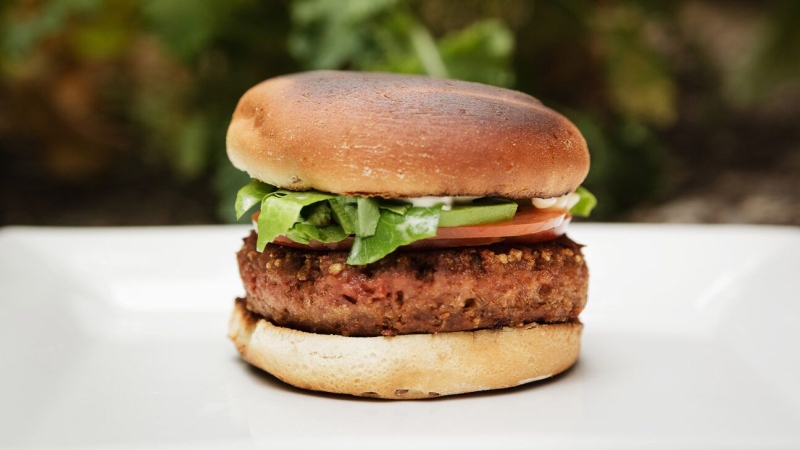- The holidays can be a time of excess, which can wreak havoc on your health.
- Maintaining a healthy lifestyle during the holidays is possible.
- Experts debunk 6 common health myths regarding holiday habits.
Parties, outings, dinners, brunches, and lunches. While the holiday season is packed with fun, it can also cause stress as you try to maintain a healthy lifestyle while engaging in festivities.
“The holidays are such an amazing and special time of year. But we also know this season can be a very chaotic and stressful time. We have a tendency to make poorer food choices and make less time for physical activity during these times,” Daniel Hermann, MD, a cardiologist at Memorial Hermann in Houston, told Healthline.
A 2023 survey from the American Heart Association found that the holidays are more stressful than taxes, and more than three-quarters of the people surveyed agree that they overlooked their health needs during the holidays.
“[It] is very challenging to stay heart healthy during the holidays given the distractions from an abundance of high-caloric, high sodium, and high fat foods along with increased consumption of alcohol at social gatherings,” Laxmi Mehta, MD, a noninvasive cardiologist at The Ohio State University Wexner Medical, told Healthline. “Also, relaxed schedules and travel results in a disruption of exercise routines.”
Add in the pressures of social gatherings and gift-giving, and prioritizing health comes last.
To help you navigate making healthy choices, experts debunk the most common myths about eating healthy and keeping stress-free during the holidays.
Myth: Stress is unavoidable during the holiday season
Even though the season feels fast-paced and hectic, taking a few minutes to relax and recharge is possible.
First, prioritize sleep by aiming for 7 to 9 hours. Second, continue to practice what makes you feel relaxed, whether it’s daily walks, reading, or watching a movie.
“Practicing relaxation techniques, like deep breathing, yoga, or meditation, is helpful too,” said Mehta. “And equally important is to set boundaries by not saying yes to everything and make realistic plans on what they can truly accomplish without being overwhelmed.”
Myth: Skipping meals saves calories
As tempting as it is to skip meals to “save your calories” for later, there are mixed messages on the benefits of doing so.
Some research shows that skipping meals may have positive effects on blood sugar and bad cholesterol, while other evidence reports that doing so may make you hungrier and lead to overeating.
One study found that meal skipping is associated with a higher mortality risk.
In general, Hermann said it is best to follow a heart healthy diet and lifestyle that you can make a habit and maintain. “Fad diets are, as a general rule, not maintained for the long term.”
Myth: Watching sodium intake is not important
Eating excess sodium increases the risk of high blood pressure, heart failure, enlargement of the heart, and heart attack, said Mehta.
While sodium is ubiquitous in the American diet, Hermann said that when too much is consumed, it leads to fluid retention, which increases blood pressure and puts stress on the heart and other critical internal organs.
Below are the top 10 food sources of sodium in the American diet, according to the American Heart Association:
- Breads/rolls
- Pizza
- Sandwiches
- Cold cuts, lunch, and cured meats
- Soups
- Burritos/tacos
- Snacks like chips, crackers, pretzels, popcorn, and snack mixes
- Poultry
- Cheese
- Egg dishes/omelets
In addition to limiting the above foods and putting down the salt shaker, try eating fresh fruit and vegetables and reading labels for sodium content.
Myth: It’s OK to skip exercise during the holidays
Finding time to exercise during the holidays can be hard. In fact, nearly 45% of people report taking a break from exercise, and more than half report feeling tired and having less time for themselves.
“Exercise can help take your mind off food and also offset some of the excess calories consumed during the holidays…and can also help relieve stress too,” said Mehta.
Try to keep up with the same exercise schedule you follow year-round but be flexible and get creative if a holiday event throws you off track. Consider walking to a restaurant or friend’s house who is hosting a party or suggest a group bike ride rather than holiday brunch.
Remember that while exercising is good for the heart, it cannot completely offset unhealthy eating, noted Mehta.
Myth: Consuming extra alcoholic beverages during the holidays is OK
Sales for alcohol are highest in December. According to the U.S. Census Bureau’s monthly retail sales survey for December 2022, sales for alcohol were 37% above the average for the other 11 months of the year.
With an abundance of alcohol surrounding the holidays, it’s easy to indulge. In small or modest amounts, Hermann said alcohol has some theoretical cardiovascular benefits. However, keep in mind alcoholic beverages are high in calories, sugar, and salt.
Additionally, the World Health Organization released a statement in 2022 that said when it comes to alcohol consumption, there is no safe amount that does not affect health.
“[In] excess, it is clearly toxic. It’s linked with heart disease, hypertension, cardiomyopathy, and obesity,” he said.
If avoiding alcohol altogether isn’t your plan, try limiting your consumption to one glass at parties and then switching to sparkling water or another low calorie, alcohol-free beverage.
Myth: You can catch up on sleep after the holidays
Sleep is the most underrated aspect of health because, during sleep, the body resets and repairs itself, said Hermann. Not getting enough quality sleep regularly raises the risk of diseases such as heart disease, stroke, obesity, and dementia.
“Not getting enough sleep increases our stress levels and impacts our decision making skills, and so it is harder for people to make healthy lifestyle choices,” said Mehta. “Prolonged periods of inadequate sleep can cause heart disease risk factors like high blood pressure, significant weight gain, and diabetes.”
To get more sleep, the National Institutes of Health recommends the following.
- Go to sleep and wake up at the same time every day of the week.
- Exercise daily but not too close to your bedtime.
- Get natural sunlight for at least 30 minutes every day.
- Cut back on nicotine and caffeine.
- Only take short naps and avoid taking them in the afternoon or later.
- Don’t drink alcohol and big meals before bedtime, which can prevent deep, restorative sleep.
- Instead of using screens before bed, relax by reading a book or listening to calming music.
- Keep your bedroom cool, quiet, and dark.
- If you can’t fall asleep after 20 minutes in bed, get up and engage in a relaxing activity until you feel sleepy.



